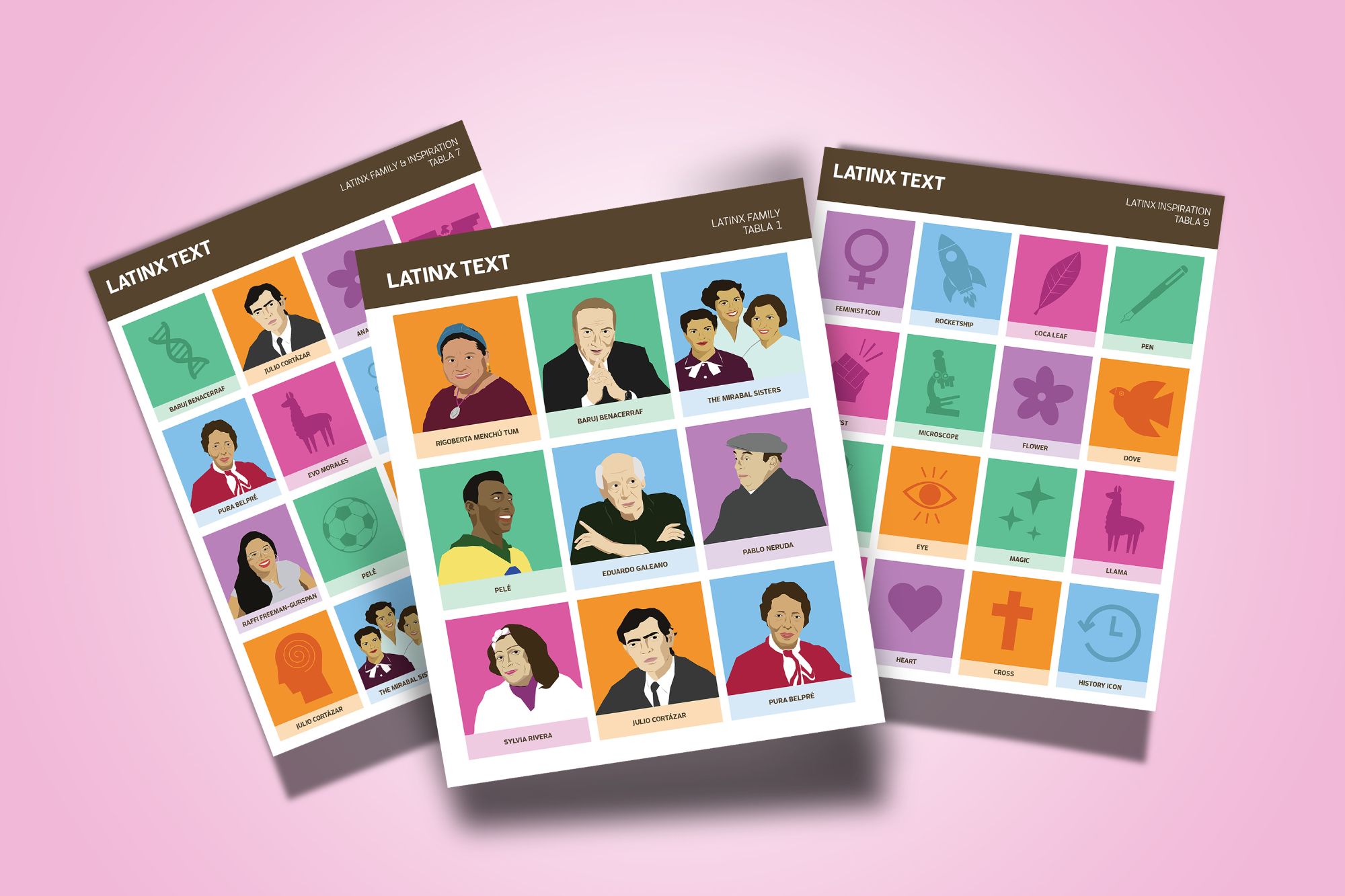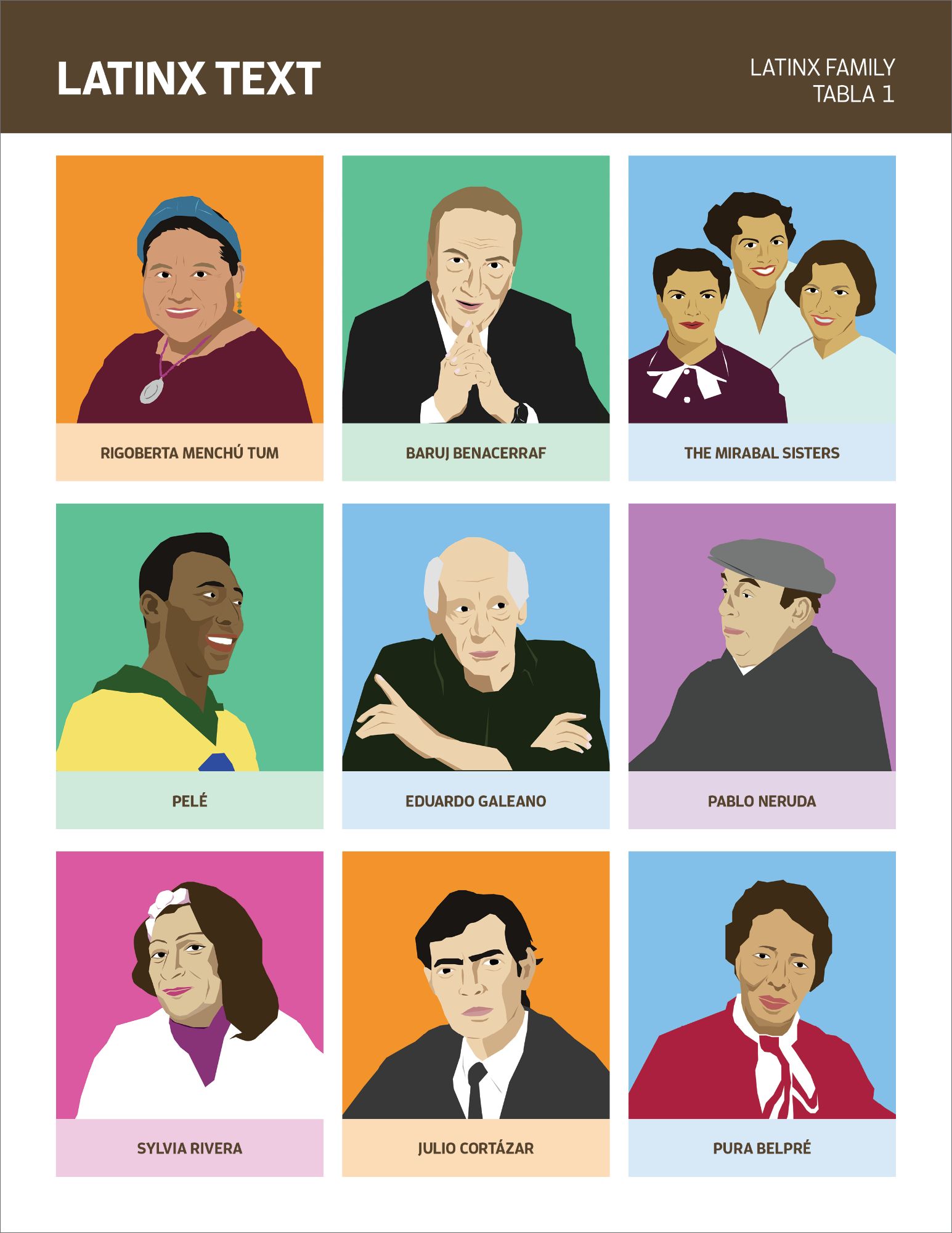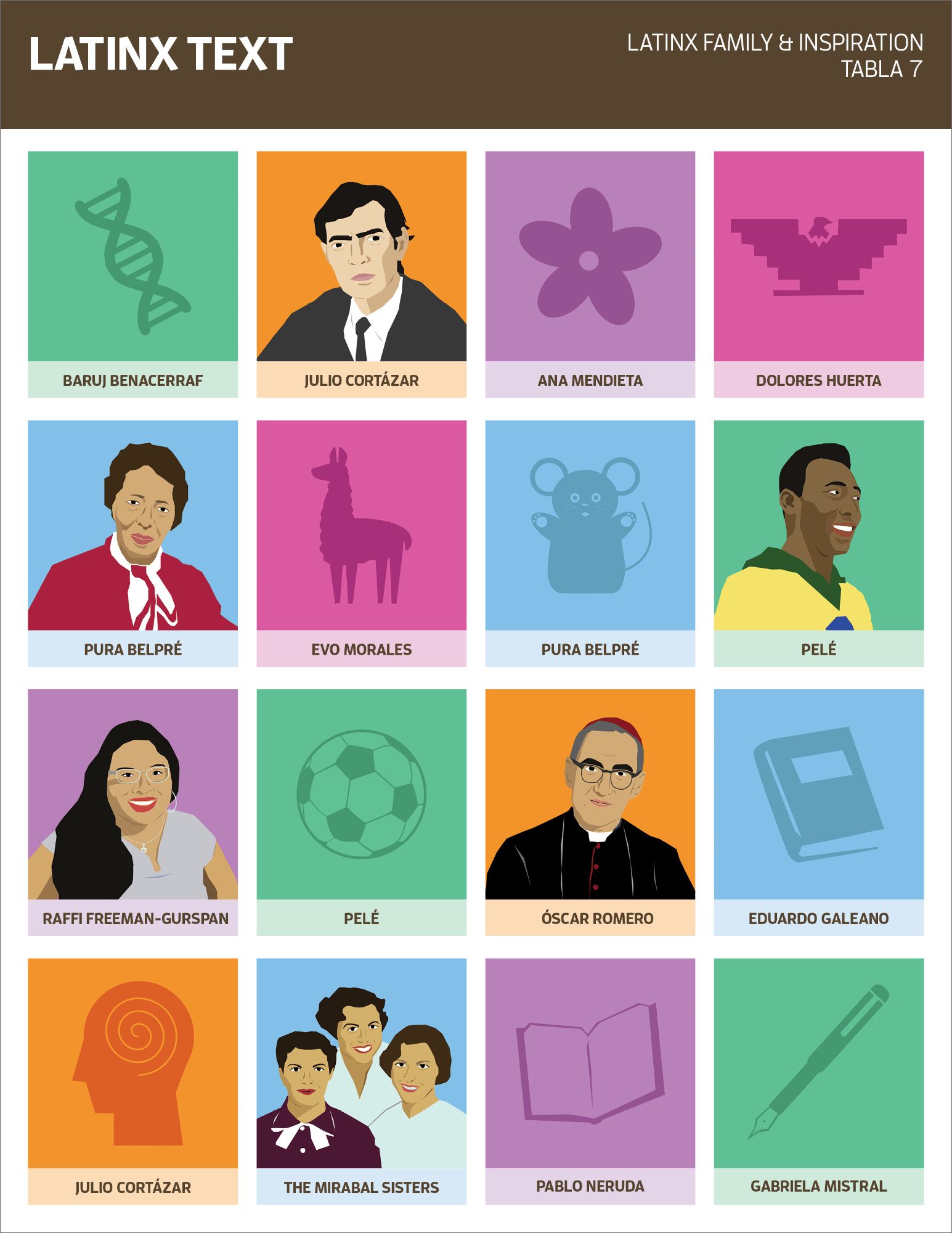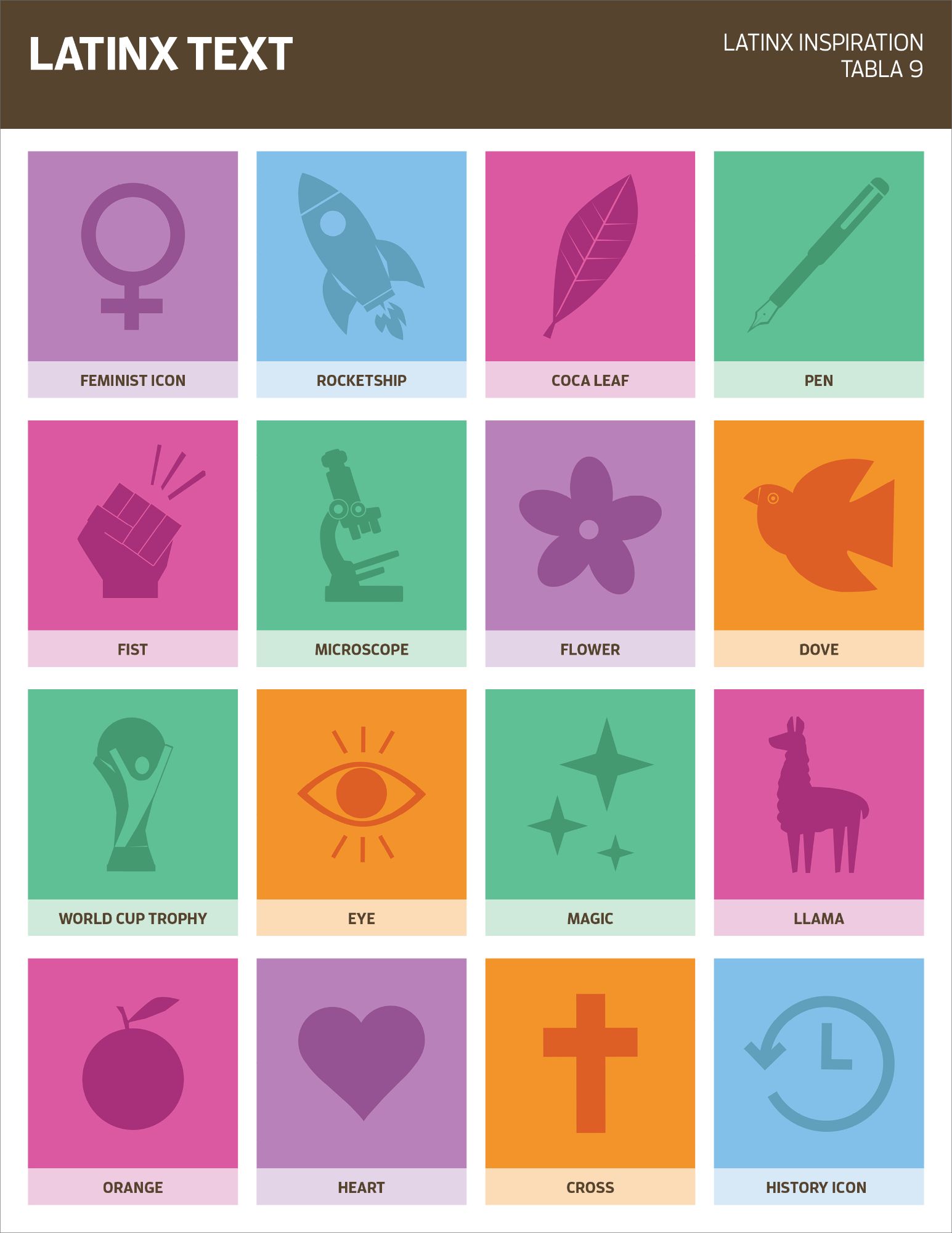LOTERIA


The traditional Loteria game originated in Italy. Through trading, it found its way to Spain, and finally came to Mexico in 1769 through colonization. Loteria was originally played by the upper class.
However, over time more people around Mexico began to play the enjoyable game. Ever since, Loteria has been a part of family gatherings and parties where people can spend time together and share the fun!
1. Each player chooses a tabla at random. One player is assigned to be the “caller” which draws each calling card at a time and calls out the card. *Reminder: cut out calling cards before starting game.
2. The caller starts the game by drawing a card from the deck and reads the name aloud.
3. If the image of the card is on the player's tabla, then an object (a coin, pebble, dry bean or other small object) is placed on top of each respective image on the table.
4. This is repeated until someone completes a row (horizontally, diagonally, or vertically) on their tabla and shouts "loteria!"

The first level consists of tablas and cards that only include the significant figures. This is meant to be the easiest version of the game which helps players recognize the Latinx figures’ names and faces.

The second level consists of tablas and cards that include both significant figures and related icons. This is a medium level version of the game that helps relate each figure to their relevant occupation or impact they had through the
specific icons.

The third level is the most difficult which relies on the player being tested on their knowledge of each significant figure. The cards being called will consist of each significant figure. However, they will have to know the icon
related to that person. Some icons could be used for multiple figures, but it is up to the player to defend their choice for each card which encourages discussion among players.